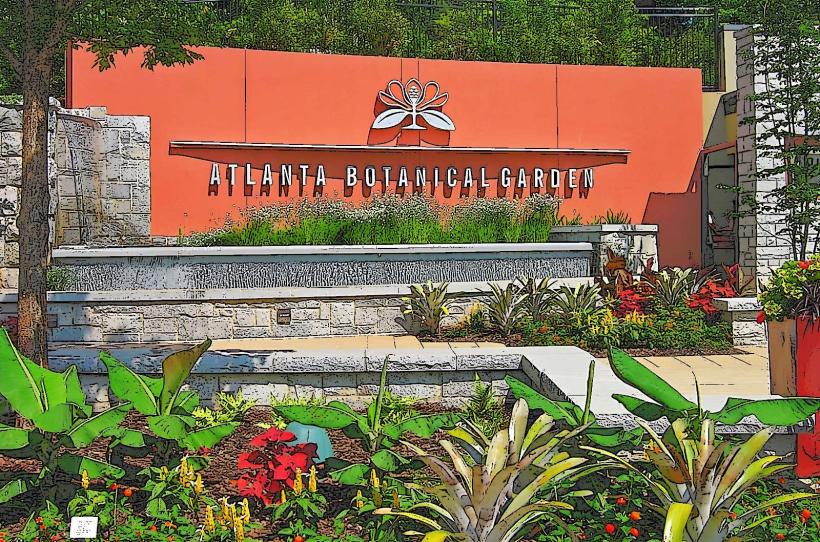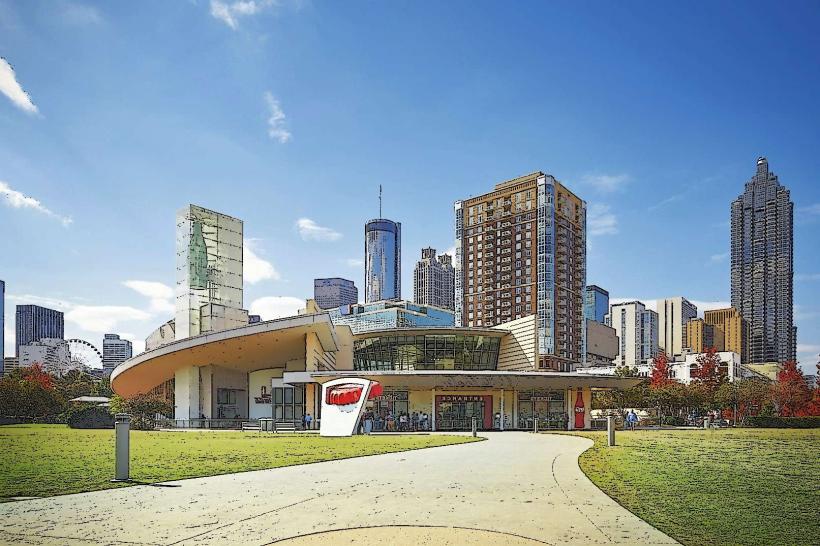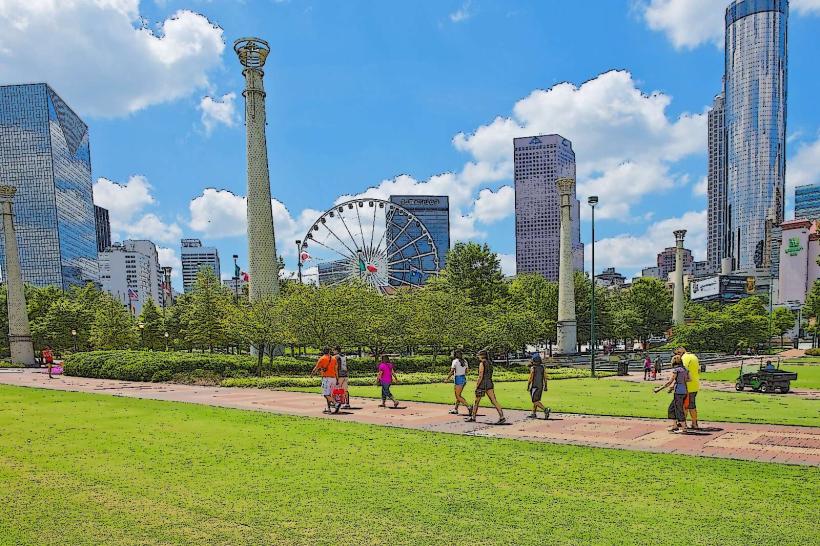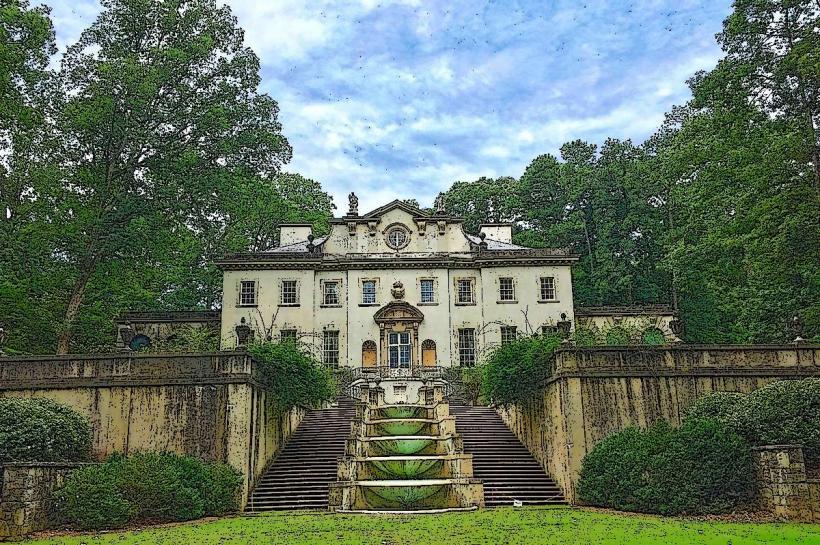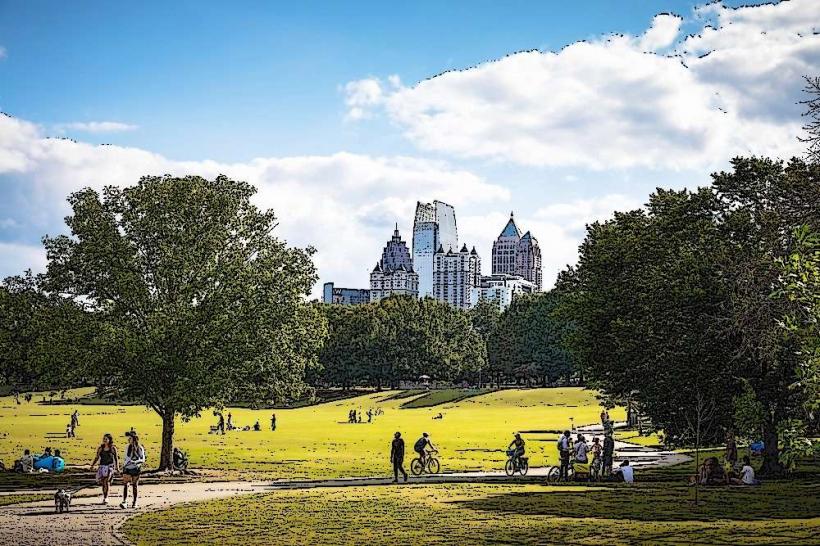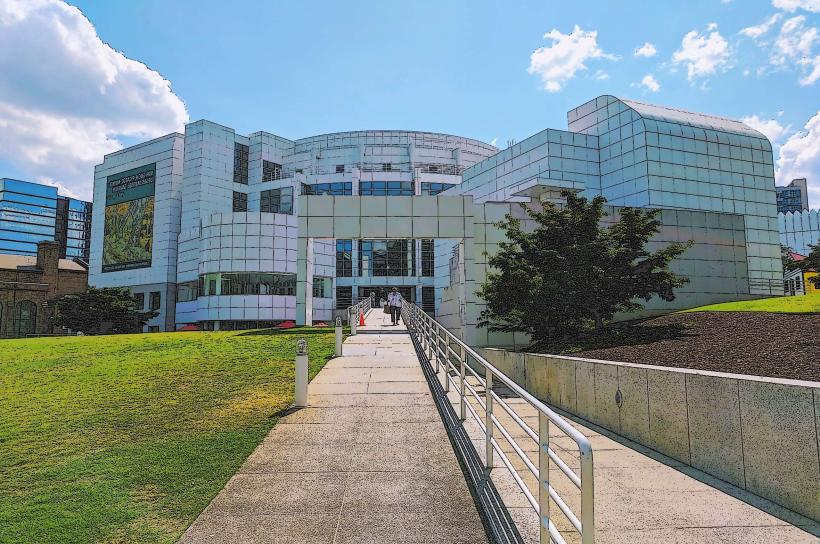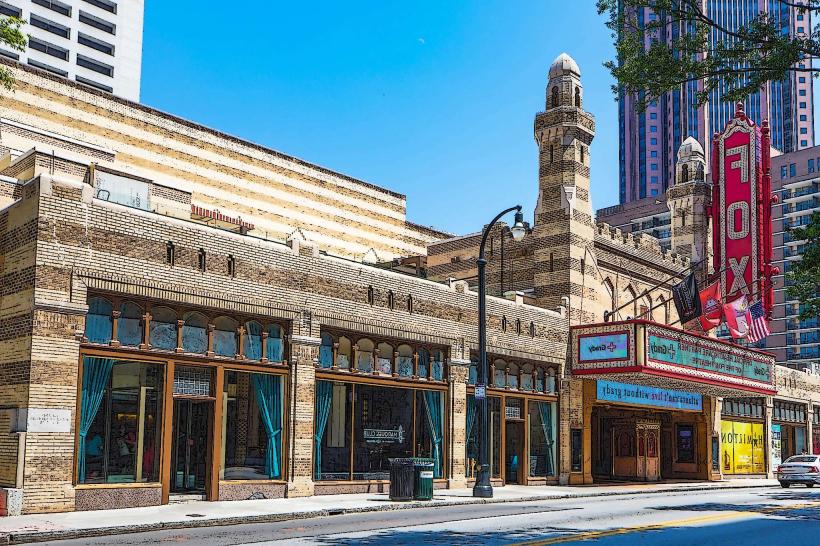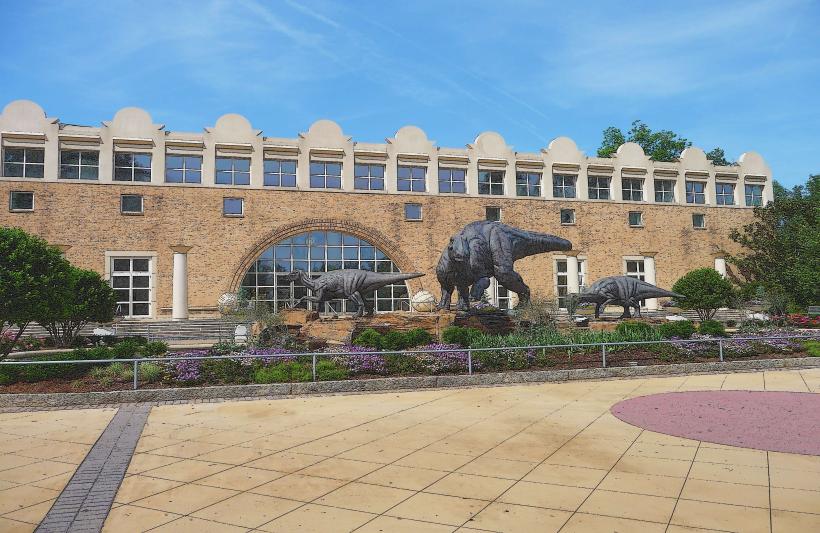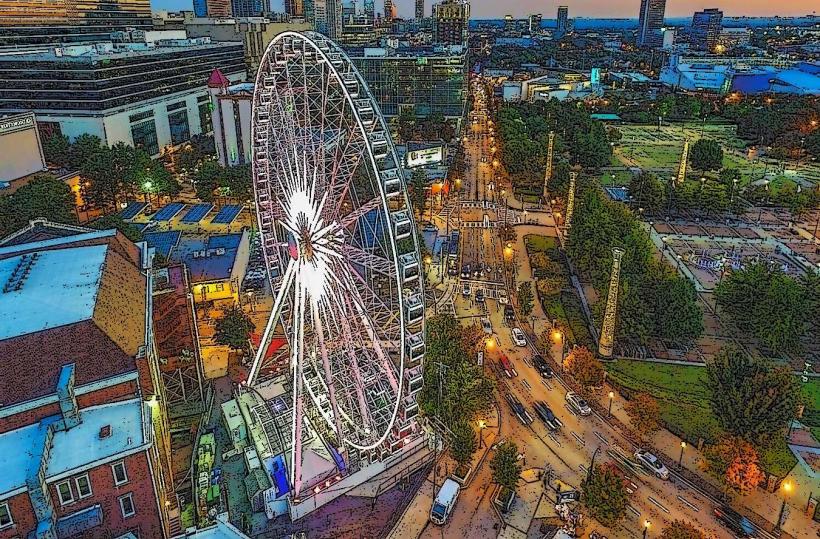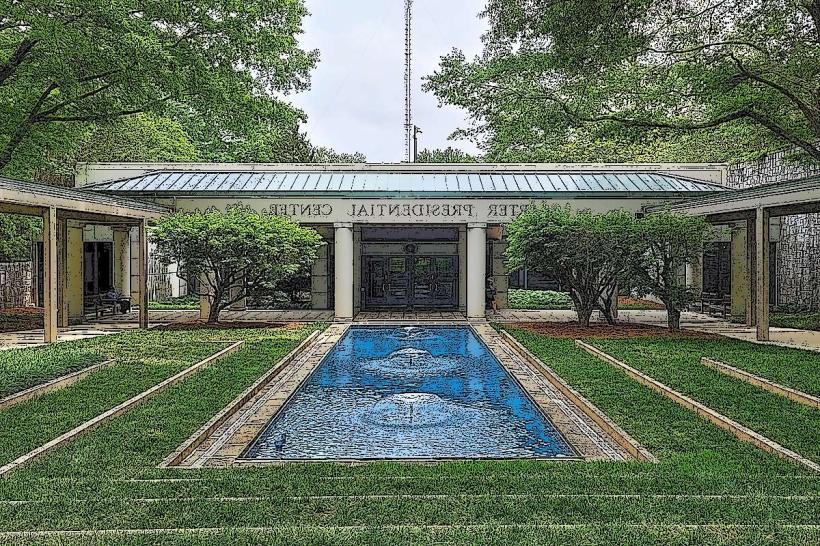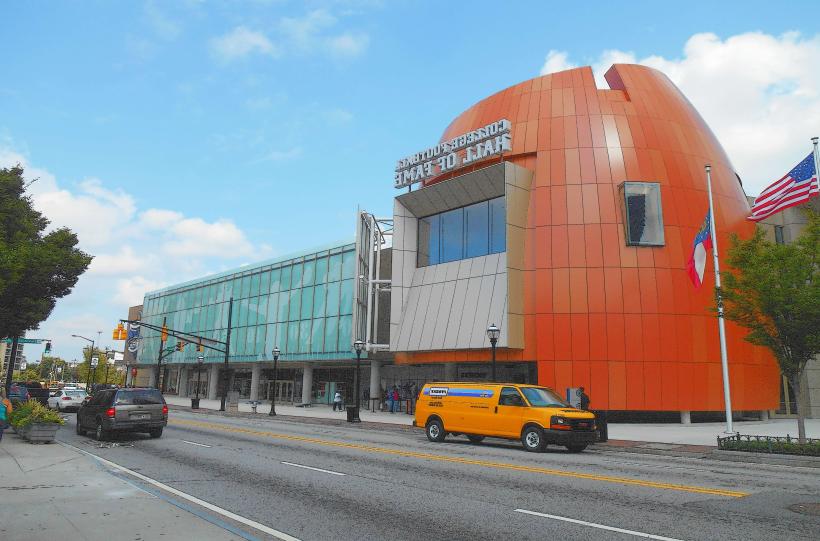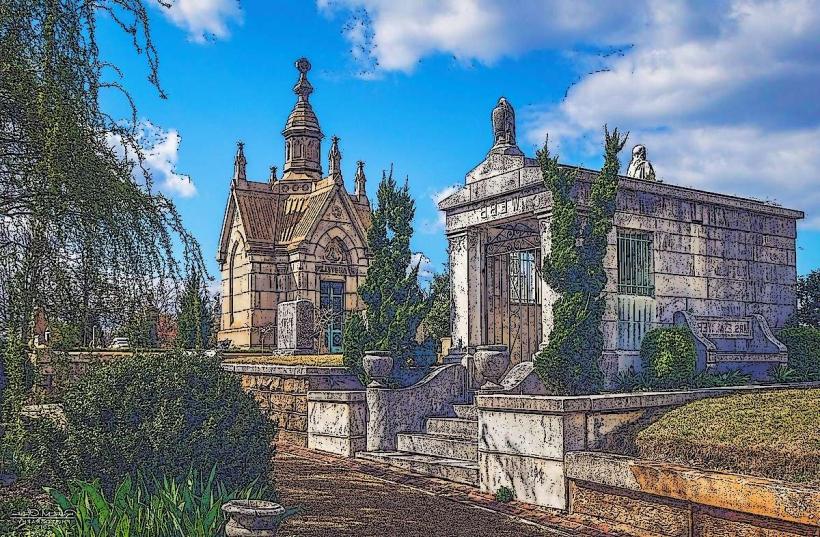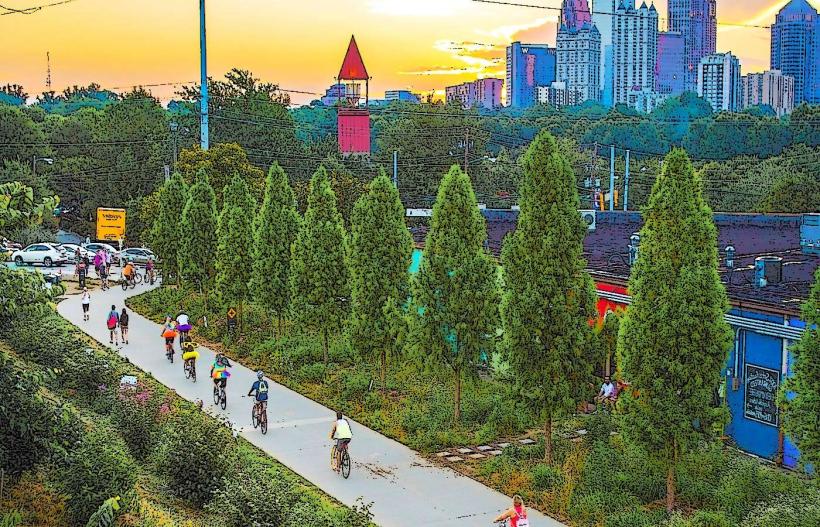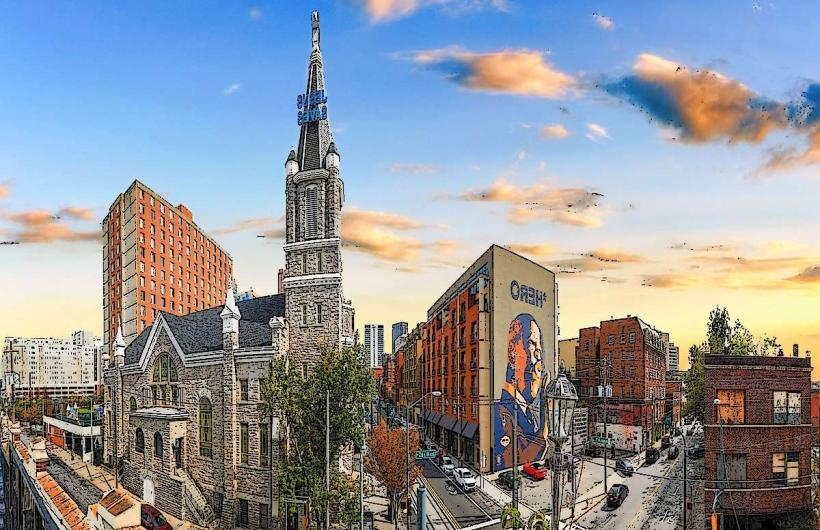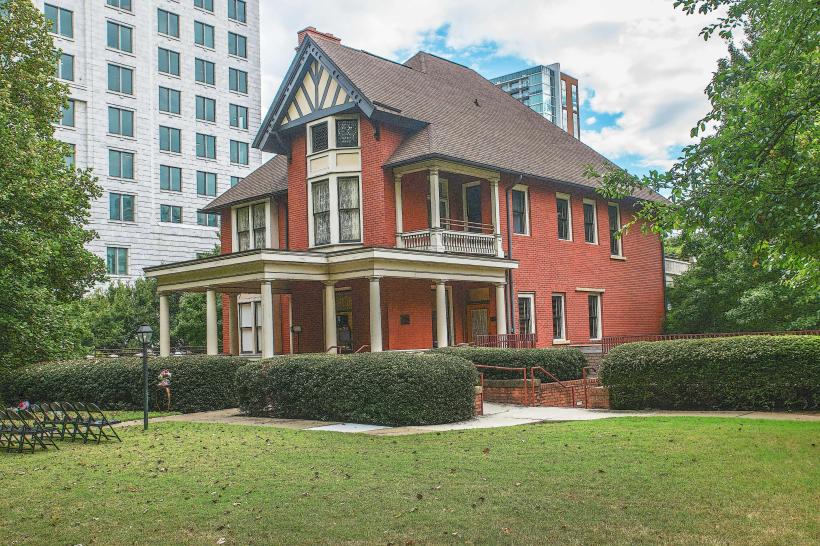Information
Landmark: Martin Luther King Jr. National Historical ParkCity: Atlanta
Country: USA Georgia
Continent: North America
Martin Luther King Jr. National Historical Park, Atlanta, USA Georgia, North America
Martin Luther King Jr. National Historical Park is a designated area in Atlanta, Georgia, USA, preserving sites associated with the life and work of Dr. Martin Luther King Jr.
Visual Characteristics
The park encompasses several structures. The Ebenezer Baptist Church Heritage Sanctuary is a brick building with a simple, rectangular facade and a prominent steeple. The King Center includes the crypt of Dr. Martin Luther King Jr. and Coretta Scott King, marked by a reflecting pool and eternal flame. The birth home of Dr. King is a two-story Victorian house constructed of wood and brick.
Location & Access Logistics
The park is located approximately 1.5 miles east of downtown Atlanta. Access is via Auburn Avenue NE. Parking is available in designated lots within the park, with capacity for approximately 100 vehicles. Public transport options include MARTA bus lines 3, 10, and 21, which stop near the park entrance. The nearest MARTA rail station is the King Memorial Station, located 0.3 miles west.
Historical & Ecological Origin
The park preserves sites central to the Civil Rights Movement. The Ebenezer Baptist Church was founded in 1886 and served as Dr. King's spiritual home. His birth home was constructed in 1895. The King Center was established in 1968 following Dr. King's assassination to promote his philosophy and dream.
Key Highlights & Activities
Visitors can tour the preserved birth home of Dr. Martin Luther King Jr. (reservations often required). The Ebenezer Baptist Church Heritage Sanctuary is open for self-guided tours. The King Center houses exhibits on the Civil Rights Movement and the lives of Dr. King and Coretta Scott King. The crypt of Dr. and Mrs. King is a site for reflection. Ranger-led programs are offered daily.
Infrastructure & Amenities
Restrooms are available at the Visitor Center and The King Center. Shaded areas are present in the park grounds. Cell phone signal (4G/5G) is generally available. Food vendors are not located within the park, but numerous restaurants are situated along Auburn Avenue and surrounding streets.
Best Time to Visit
The park is open year-round. Mid-morning (9:00 AM - 11:00 AM) and mid-afternoon (2:00 PM - 4:00 PM) typically offer fewer crowds. Spring (April-May) and Fall (September-October) provide moderate temperatures. No tide considerations apply.
Facts & Legends
The eternal flame at The King Center was lit by Coretta Scott King in 1968. It is intended to symbolize the continuing struggle for justice and equality. A specific tip for visitors is to check the National Park Service website for the most current information on birth home tour availability and ranger program schedules, as these can change.
Nearby Landmarks
- National Center for Civil and Human Rights - 1.2km Southwest
- Georgia Aquarium - 1.5km Southwest
- World of Coca-Cola - 1.6km Southwest
- Centennial Olympic Park - 1.7km Southwest
- CNN Center - 1.8km Southwest

